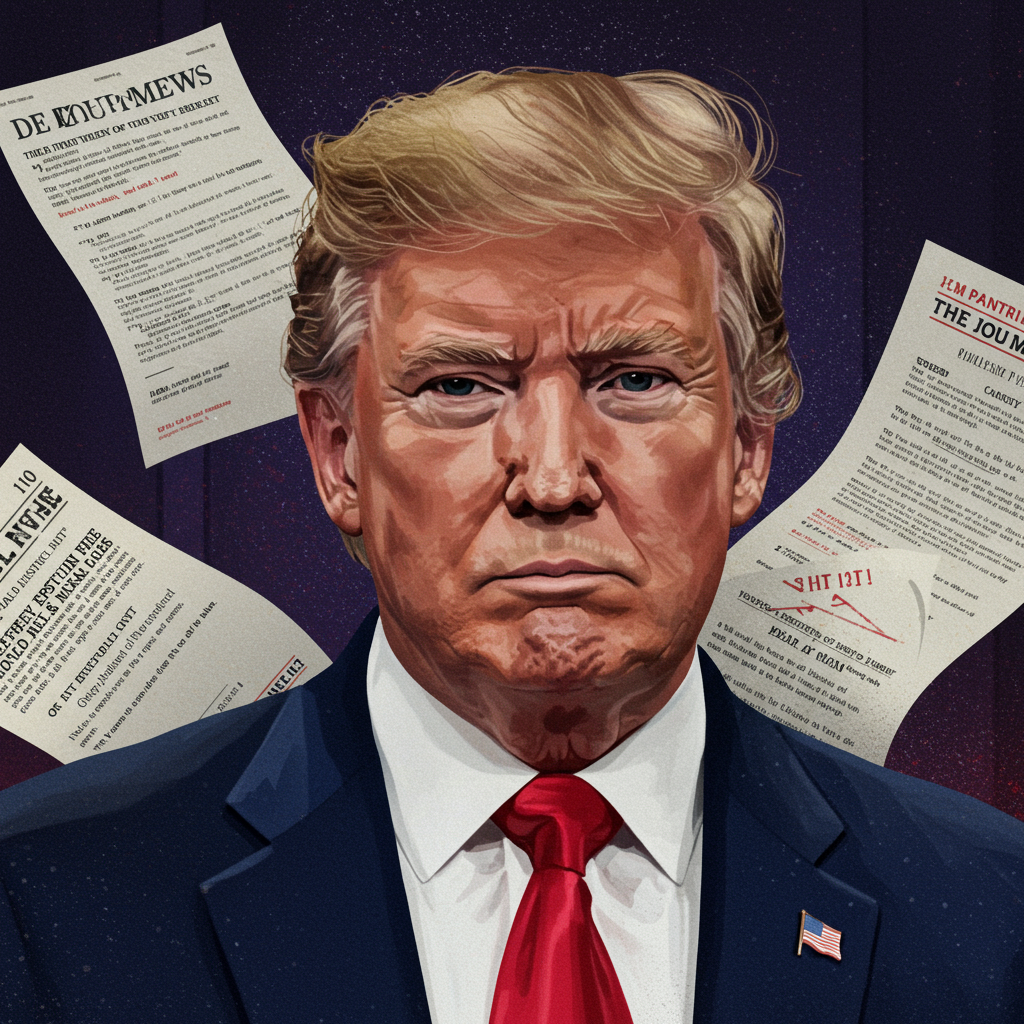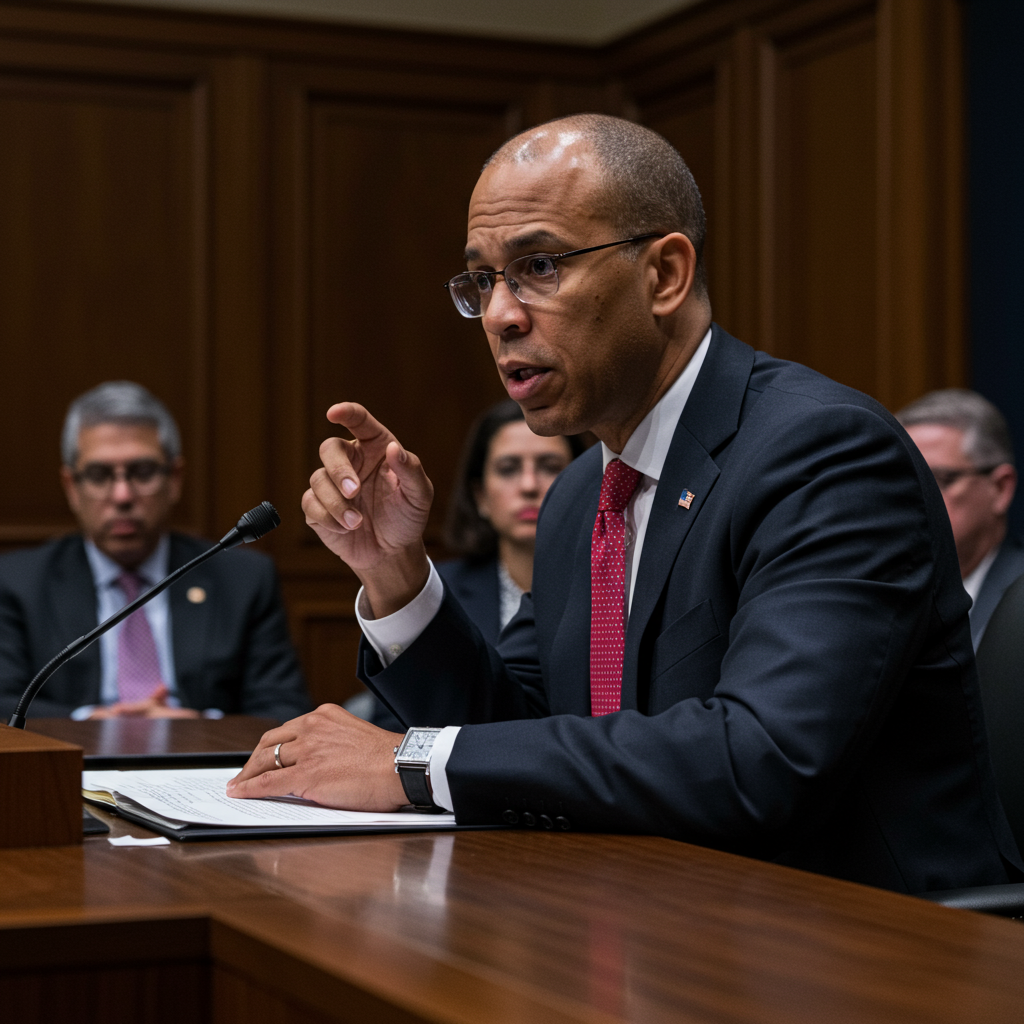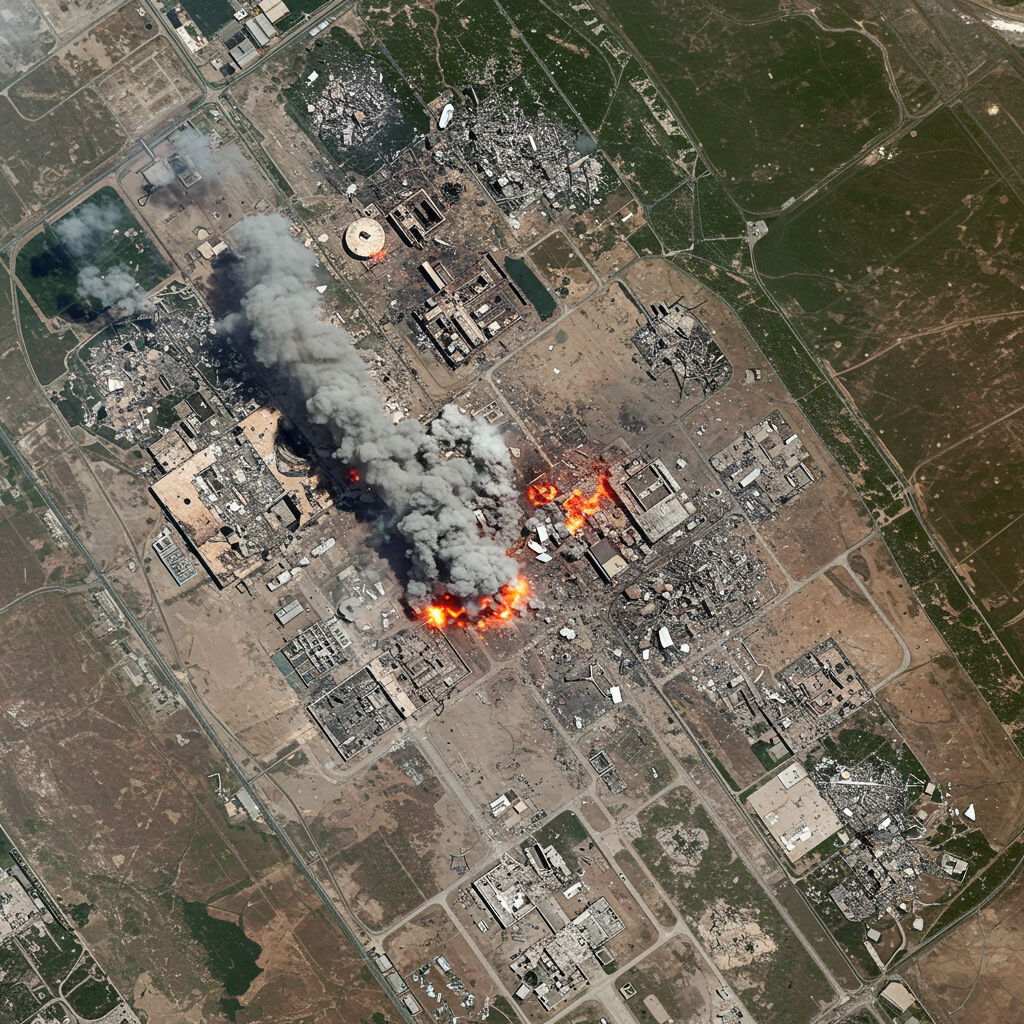The Trump administration faced intense scrutiny regarding its handling of the Jeffrey Epstein case, as a high-stakes series of meetings between the Department of Justice and Epstein’s associate, Ghislaine Maxwell, dominated headlines. These discussions underscored an administration grappling with public backlash and complex legal and political challenges. Beyond the Epstein saga, the White House engaged with critical global conflicts and navigated significant domestic policy shifts, painting a picture of a presidency facing multifaceted pressures.
Inside the Maxwell Interrogations: A DOJ Deep Dive
Deputy Attorney General Todd Blanche recently concluded two unprecedented days of meetings with Ghislaine Maxwell, a convicted sex trafficker linked to Jeffrey Epstein. These highly unusual sessions took place in Tallahassee, Florida, where Maxwell is currently serving a 20-year prison sentence. Maxwell’s attorney, David Oscar Markus, characterized the meetings as “very productive.”
Unprecedented Meetings Unfold
Deputy Attorney General Todd Blanche, who previously served as former President Trump’s personal lawyer, led the interviews. The second session, lasting approximately three hours, followed an initial six-hour encounter. Markus confirmed that Maxwell answered every question posed to her. She reportedly discussed around 100 different individuals, never invoking privilege. Markus stated Maxwell answered “honestly, truthfully, to the best of her ability,” emphasizing that “everything she says can be corroborated.” He asserted that Maxwell “didn’t hold anything back” and expressed gratitude that the government finally questioned her.
Maxwell’s attorney described her as a “scapegoat” treated “very unfairly” under “terrible, awful conditions” in prison. He also indicated that while “no asks and no promises” were made regarding a deal or leniency, Maxwell would “welcome any relief.” The Department of Justice, through Blanche’s social media posts, confirmed the meetings. Officials stated their intention to gather information Maxwell might possess about others who assisted Epstein in sexually abusing girls.
However, the meetings drew significant skepticism from various quarters. Annie Farmer, an Epstein victim who testified against Maxwell, voiced disappointment. She highlighted that these crucial discussions occurred “behind closed doors without any input” from victims. Democrats, including Senate Minority Leader Chuck Schumer and Representative Jasmine Crockett, raised concerns. They cited a potential “glaring conflict of interest” due to Blanche’s past representation of Trump. Some also worried about the possibility of the DOJ “sanitising information” or offering a pardon in exchange for specific statements.
Maxwell’s Quest for Clemency and Appeal Status
During this period, President Donald Trump addressed questions about a potential pardon or commutation for Maxwell. Trump stated he “hasn’t thought about” pardoning Maxwell. He did clarify, however, that he is “allowed to do it.” When pressed further, he deferred to Blanche’s professionalism, praising him as a “great attorney.” Maxwell’s lawyer denied that clemency discussions influenced her answers, asserting her desire to “tell the truth.”
Maxwell is actively appealing her 2021 conviction to the Supreme Court. Her legal team argues her conviction is invalid. They cite a 2007 non-prosecution agreement between federal prosecutors and Epstein. This agreement, they claim, should have shielded Maxwell and other associates from criminal charges. The Justice Department, however, strongly opposed her appeal. In a July 14 filing, the DOJ urged the Supreme Court to reject it. They asserted that Maxwell “coordinated, facilitated, and contributed” to Epstein’s abuse of young women and underage girls for a decade. The Supreme Court is expected to consider her appeal later this year. Maxwell is serving her sentence at FCI Tallahassee, a low-security women’s prison known for its dilapidated conditions and staffing shortages.
The Shadow of the Epstein Files and Trump’s Connections
The Maxwell interrogations occurred amidst escalating pressure on the Trump administration. Public and congressional calls mounted for the release of documents related to the Justice Department’s investigation into Jeffrey Epstein. Epstein died by suicide in a New York prison in 2019 while awaiting trial.
Unraveling the Epstein Document Timeline
Reports emerged that Attorney General Pam Bondi had informed President Trump in May that his name appeared in the so-called “Epstein files.” While the White House dismissed Wall Street Journal reports on this as “fake news,” an unnamed White House official did not deny Trump’s name appearing in the documents. It was clarified that being named in such documents does not imply criminal activity. Trump has not been accused of wrongdoing in the case.
Despite earlier pledges to release more information, the Justice Department and FBI issued a memo on July 7. This memo stated that a review of Epstein’s case found no new evidence, including no “client list.” This announcement sparked significant “uproar” among some of Trump’s supporters, who harbor conspiracy theories about high-level government involvement in sex offender rings. Attorney General Pam Bondi had previously referenced a “client list sitting on my desk” earlier in the year, adding to the public’s confusion.
Congressional Pressure and Subpoenas
Congressional response to the situation has been robust. A House of Representatives sub-committee voted to subpoena the Justice Department for the Epstein files. This action awaits the committee chairman’s final approval. Republicans on the House Oversight Committee also issued a separate subpoena for Maxwell to testify remotely from prison on August 11.
However, House Speaker Mike Johnson expressed skepticism. He warned that Maxwell, who helped Epstein groom and abuse girls, cannot be trusted to provide accurate testimony. Maxwell’s lawyer, Markus, countered these concerns, asserting she would testify truthfully if she chose to do so. Former federal prosecutor Joyce Vance also noted that any “new” testimony Maxwell offers is “inherently unreliable unless backed by evidence.”
Beyond Epstein: Trump’s Global and Domestic Agendas
While the Epstein case garnered significant attention, the Trump administration simultaneously managed a broad array of international and domestic issues.
Shifting Sands in Gaza and International Relations
President Trump commented on the deepening starvation crisis in Gaza. He emphasized that Hamas did not desire a ceasefire deal with Israel, claiming they “pulled out” of negotiations. Trump stated the need to “finish the job” and that Hamas members would be “hunted down.” These remarks followed the withdrawal of U.S. negotiators from Doha due to Hamas’ perceived “lack of desire” for a ceasefire.
Concurrently, Trump embarked on a five-day trip to Scotland, his first visit to the United Kingdom since his re-election. European Commission President Ursula von der Leyen announced she would hold trade talks with Trump in Scotland. This news, following a “good call” between them, positively impacted U.S. stocks. The report noted Trump had previously threatened a 30% tariff on the EU. In other foreign policy news, the U.S. lifted sanctions on several allies of Myanmar’s military leaders. This occurred days after Myanmar’s junta chief praised Trump and requested sanctions relief. The move highlights the Trump administration’s focus on securing rare earth minerals to reduce U.S. dependence on China.
Domestic Policy and Controversies
Domestically, the White House continued its criticism of Fed Chair Jerome Powell and the central bank’s headquarters renovation. Trump had a “very good meeting” with Powell, where the Fed Chair acknowledged the country was “doing well.” Trump interpreted this as a sign Powell would recommend lower interest rates. This followed a public instance where Powell fact-checked Trump regarding renovation costs.
The Supreme Court’s immunity ruling, which benefited Trump in his election interference case, also sparked controversy. Trump claimed this ruling would protect former President Barack Obama, adding, “Obama owes me big.” Trump reiterated accusations that Obama’s administration sought to damage his 2016 election chances. National Intelligence Director Tulsi Gabbard reportedly supported these claims. Obama and his former officials dismissed these allegations as baseless.
Other notable domestic developments included:
Former Rep. George Santos began serving a more than seven-year prison sentence for wire fraud and identity theft.
House Ethics Committee findings:
Rep. Alexandria Ocasio-Cortez (D-N.Y.) was found to have accepted an impermissible gift of free Met Gala admission for her partner. She also failed to pay full fair market value for some items worn.
Rep. Mike Kelly (R-Pa.)‘s wife “may have purchased stock based on confidential or material nonpublic information.” The committee recommended divesting shares related to Cleveland-Cliffs.
DOJ Firings Lawsuit: A former Jan. 6 prosecutor and two other ex-DOJ employees sued the Trump administration over their firings. They alleged wrongful termination linked to their Capitol Siege work.
Senator Alex Padilla (D-Calif.) introduced an immigration bill. It aims to broaden pathways to legal status and citizenship. It would make immigrants residing in the U.S. for at least seven years eligible for permanent status.
- Vice President JD Vance prepared to promote a “megabill” passed by the White House through Congress. He was scheduled to begin with a visit to a steel plant in Canton, Ohio.
- www.nbcnews.com
- www.bbc.com
- abcnews.go.com
- www.usatoday.com
- www.aljazeera.com
Frequently Asked Questions
What was the primary purpose of the Department of Justice’s meetings with Ghislaine Maxwell?
The Department of Justice, specifically Deputy Attorney General Todd Blanche, met with Ghislaine Maxwell to gather information she might possess about other individuals who assisted Jeffrey Epstein in sexually abusing girls. These meetings aimed to pursue justice and uncover additional details in the ongoing Epstein case, particularly amidst increasing public and congressional pressure for greater transparency and information release. Maxwell’s attorney stated she answered questions about approximately 100 different individuals.
How has the Trump administration responded to calls for the release of Jeffrey Epstein case files?
The Trump administration has faced significant pressure to release documents related to the Epstein case. While President Trump had previously pledged to release such files, the Department of Justice and FBI later stated that a review found no new evidence or a “client list.” This stance has led to “uproar” among some supporters and prompted congressional action. The House Oversight Committee has since voted to subpoena the DOJ for these files and separately subpoenaed Maxwell to testify remotely.
What other major policy and political events occupied the Trump administration’s focus at this time?
Beyond the Epstein case, the Trump administration was deeply engaged in various significant political and policy matters. Internationally, President Trump made strong statements on the Gaza crisis, participated in a trip to Scotland for trade talks with EU leaders, and lifted sanctions on Myanmar. Domestically, the administration continued its criticism of the Federal Reserve, dealt with the implications of a Supreme Court immunity ruling, saw former Rep. George Santos begin a prison sentence, and faced ethics investigations concerning Reps. Ocasio-Cortez and Kelly. Immigration reform and promoting new legislation also remained key areas of focus.
Conclusion
The period marked a complex chapter for the Trump administration, navigating both a sensitive legal investigation and a demanding political landscape. The unprecedented meetings with Ghislaine Maxwell brought the Jeffrey Epstein case back into sharp focus. These events highlighted the intense public and congressional demand for accountability and transparency. Simultaneously, the administration remained active on critical international and domestic fronts. This confluence of legal battles, policy decisions, and high-profile controversies underscored the multifaceted challenges inherent in governing during this tumultuous time.




